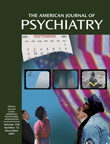An Open-Label Trial of Evidence-Based Cognitive Behavior Therapy for Nightmares and Insomnia in Crime Victims With PTSD
Abstract
OBJECTIVE: Insomnia and nightmares are perceived as secondary phenomena in posttraumatic stress disorder (PTSD). Scant treatment research has targeted these two sleep disturbances. This study reports on an open-label trial of cognitive behavior therapy for insomnia and disturbing dreams in crime victims with PTSD. The relationship among nightmares, sleep disturbances, and PTSD symptoms is discussed. METHOD: Sixty-two participants completed a 10-hour group treatment consisting of imagery rehearsal for nightmares and sleep hygiene, stimulus control, and sleep restriction for insomnia. Nightmare frequency, sleep quality, sleep impairment, and ratings for PTSD, anxiety, and depression symptoms were assessed at baseline and at the 3-month follow-up. RESULTS: All measures demonstrated improvement that was roughly equivalent to changes in clinical severity from severe to moderate for sleep quality, sleep impairment, and nightmare frequency, from borderline severe to borderline moderate for PTSD symptoms, and from extremely severe to borderline severe for anxiety and depression symptoms. CONCLUSIONS: In this uncontrolled study, successful treatment for insomnia and nightmares in crime victims was associated with improvement in symptoms of PTSD, anxiety, and depression. Participants with clinical improvements in PTSD symptoms demonstrated significantly greater improvement in sleep quality and nightmare frequency than those whose PTSD symptoms did not improve.



